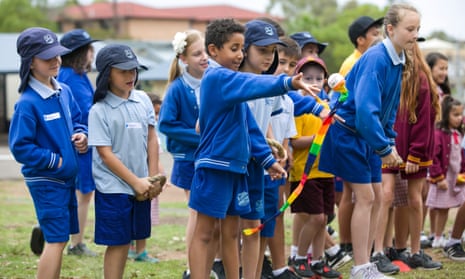
Context
The relationship between India and Australia has been growing steadily over the past few decades, marked by increased trade, cultural exchange, and strategic partnerships. However, one area that remains underdeveloped is “India literacy” in Australia. This term refers to the understanding and knowledge of Indian culture, society, economy, and political landscape among Australians. Enhancing India literacy can unlock significant bilateral potential, fostering deeper economic, educational, and cultural ties between the two nations.
The Current State of India Literacy in Australia
- Educational Programs: Over the last decade or so, the number of educational programs in India and SAG in the Australian universities has substantially come down. As early as mid 1990s, there were 13 South Asia or India programs operating in Australia but currently there are only two. This has also reduced Australia Asia Studies that is important in enhancing knowledge of India hence presents a threat to Asia Studies in general.
- Language Proficiency: Language is one of the components of culture which plays an important role in the process of cultural understanding. Though, Indian languages have also been taught in the educational instituions of Australia but the remission has been observed remarkably. Hindi is definitely one of the most dynamically developing languages in Australia, but there are very few people of the Aboriginal people, or people from other countries without South Asian origin, who can speak Hindi perfectly. This relative lack of language skills complicates the task of achieving a broader understanding of Indian culture and society even more.
Economic Potential
- Trade and Investment: The economic cooperation between India and Australia is still in its embryonic stage and hence has a greater potential for enhancement. While critical progress has been made under the Economic Cooperation and Trade Agreement (ECTA), still, Australian companies seem to lack clarity about how to do business with India. If the literacy level in India is improved then the Australian companies shall be in a better position to unlock the Indian market since they understand the various hurdles that they are likely to encounter thus facilitating increased trade and investment between the two countries.
- Workforce Collaboration: India is known for its skilled workforce, particularly in the fields of information technology, engineering, and healthcare. By fostering greater Indian literacy, Australian companies can better leverage this talent pool, leading to mutually beneficial collaborations. This can also help address skill shortages in Australia, particularly in high-demand sectors.
Educational and Cultural Exchange
- Student Mobility: India has always been one of the biggest suppliers of international students to Australia. Helping to increase literacy about India in Australia can make the time of the Indian students in the country more friendly. This in return may help to attract more students from India that will be beneficial to the Australian education sector.
- Cultural Understanding: The use of cultural exchange programs and other related programs can go a long way in improving literacy in India. Therefore, this kind of program should be embraced by both the asian and the american countries since they would foster understanding and appreciation of each other’s culture. This can assist in developing greater people–to–people contacts which are very important in enhancing a bilateral relationship.
Strategic and Security Cooperation
- Maritime Security: The similarities in the strategic interests of both India and Australia are the focus on the Indo-Pacific region. White India literacy can largely enhance cooperation in such sectors as in maritime security, humanitarian assistance and disaster response. Knowledge of the prospects and problems that India faces in the turn of strategic partnerships throws light to help Australia to enhance its policies in the region.
- Defense Collaboration: The bilateral relationship between India and Australia is another security dialogue at the ministerial level named as the Comprehensive Strategic Partnership (CSP). Improving India literacy can bolster these conversations which will improve defense cooperation. This may be helpful in increasing regional stability and security that will help both countries.
Policy Recommendations
- Reviving Educational Programs: Continue and develop India and South Asia focus in Australian Universities by providing a greater number of courses on Indian history, culture, politics, economy and language education.
- Promoting Cultural Exchange: Encourage such activities as student exchange programs, cultural fairs, and research counterparts to Enhance people to people relations and cooperation between the two countries.
- Business Engagement: Promote the awareness among the Australian businesses to engage with India through training, market analysis and tie-ups. Trade missions and forums are important as they represent the support provided by the government.
- Strengthening Strategic Dialogue: Encourage policy makers and defense personnel of India to increase awareness of India through training, workshops and seminars regarding the Strategic vision of India that will help them in having a better understanding in the Indo-Pacific region.
Source: The Hindu
Post Views: 547
